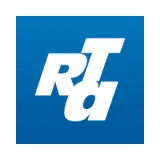- Free Version: Available for teams of up to 10
- Pricing: Premium plan $24/seat/month (with free 30-day trial period)
- Platforms supported: Available as a mobile app (iOS and Android) or a web-based software
Why Use SafetyCulture?
SafetyCulture makes it easier for teams to ensure that their school buses are always safe and functional. Schedule regular maintenance and generate reports on all maintenance activities to stay on top of any changes and issues, and prevent safety and automotive issues. Keep children and drivers safe through regular maintenance, and never miss a scheduled check with notifications and alerts. Teams can also integrate this platform with other maintenance and fleet management tools to take its functionality to the next level, streamlining workflows.
Features:
- Use digital checklists during maintenance and pre-trip inspections to ensure employees cover all bases when inspecting school buses.
- Track vehicles and assets with QR codes that show all scheduled and accomplished maintenance activities when scanned.
- Train new drivers and employees in regular maintenance tasks to ensure quality of work.
- Keep all drivers and teams on the same page by sending maintenance announcements and memos on the platform.
- Monitor driver behavior and vehicle conditions on the road with telematics sensors and Internet-of-Things (IoT) devices.
Why Use RTA Fleet?
RTA helps schools track, schedule, and manage bus maintenance efficiently. Its robust reporting tools and preventative maintenance features reduce downtime and extend vehicle life.
Features:
- Preventive maintenance tracking
- Real-time vehicle history
- In-house consultation services
- Free Version: No
- Pricing: Gold plan starts at $6/asset/month
- Platforms supported: Available as a mobile app (iOS and Android) or a web-based software
Why Use Fleetio?
Fleetio offers a modern, mobile-friendly platform for fleet managers of all kinds, including school bus managers, to automate maintenance workflows. It simplifies inspections, tracks service history, and integrates with fuel and telematics data.
Features:
- Maintenance shop network
- Service reminders
- Parts inventory alerts
- Free Version: No
- Pricing: Essential plan starts at $4/vehicle/month, billed annually
- Platforms supported: Available as a mobile app (iOS and Android) or a web-based software
Why Use Transfinder?
Transfinder streamlines bus maintenance alongside routing and transportation operations, committed to keeping drivers safe. It helps districts manage fleet readiness while improving student safety.
Features:
- Work order creation
- Maintenance alerts
- Student driver training
- Free Version: No
- Pricing: Contact vendor for pricing
- Platforms supported: Available as a mobile app (iOS and Android) or a web-based software
Why Use Tyler Tech?
Tyler’s transportation solutions include tools to manage maintenance, optimize bus routes, and ensure compliance, mainly for the public service sector and schools. This system supports safe and efficient school bus operations.
Features:
- Vehicle service logs
- Parent communication tools
- Fuel logs
- Free Version: No
- Pricing: Contact vendor for pricing
- Platforms supported: Available as a mobile app (iOS and Android) or a web-based software
Why Use BusHive?
BusHive centralizes school bus fleet maintenance, inspections, and reporting into one easy-to-use system. It improves efficiency and ensures vehicles meet transportation safety standards, keeping both the driver and their passengers safe on the road.
Features:
- Financial management tools
- Contractor management
- Warranty control
- Free Version: No
- Pricing: Contact vendor for pricing
- Platforms supported: Available as a web-based software
Why Use Cetaris?
Cetaris offers a comprehensive, data-driven platform tailored for all types of fleets including school bus fleets, enhancing safety, compliance, and operational efficiency. By automating preventive maintenance and streamlining work orders, it reduces downtime and extends vehicle lifespan, ensuring safety on the road.
Features:
- Repair history tracking
- Standard repair time benchmarking
- Work shift management
- Free Version: No
- Pricing: Contact vendor for pricing
- Platforms supported: Available as a web-based software
What is School Bus Maintenance Software?
School bus maintenance software is a digital tool designed to help school districts and transportation departments manage the upkeep and safety of their bus fleets. It tracks preventive maintenance schedules, logs repairs, manages work orders, and monitors vehicle inspections to ensure buses remain roadworthy. By automating these tasks, the software improves efficiency, reduces downtime, and supports compliance with safety regulations.
Importance
Maintenance is essential to ensure the safety and reliability of buses, keeping students, teachers, and drivers safe. School bus maintenance software plays a key role by helping school districts stay ahead of mechanical issues through routine servicing, inspections, and real-time reporting. This proactive approach minimizes unexpected breakdowns and ensures that every vehicle on the road is safe, reducing the risk of accidents and delays.
Adhering to safety standards is also a legal and moral responsibility for all school transportation providers. These standards include regular inspections, brake checks, tire monitoring, and emissions compliance, all of which are streamlined through maintenance software. By maintaining detailed records and scheduling timely repairs, districts support school bus safety and demonstrate accountability to parents, students, and regulatory bodies like the US National Highway Traffic Safety Administration (NHTSA) and Transport Canada.
Key Features
There are various school bus maintenance software options available, each with its own unique features and benefits. While most of these options can help schools and transport departments improve safety and maintenance practices, it’s critical to choose an option that comes with the following key features:
- Preventive maintenance scheduling
- Work order management
- Vehicle inspection tracking
- Parts and inventory control
- Service history logs
- Maintenance cost reporting
- Real-time alerts and notifications
- Compliance and safety tracking
- Mechanic time tracking
- Integration with telematics and IoT systems
How to Choose the Right School Bus Maintenance Software
Teams need to choose a maintenance platform that fits their needs and can help improve maintenance practices overall. To help, here’s a quick comparison of the options featured above to help you determine the best fit for your school bus fleets:
| School Bus Maintenance Software | Free Version | Paid Plan | Mobile App |
| SafetyCulture | Yes | $24/seat/month* | Yes |
| RTA Fleet | No | $6/asset/month | Yes |
| Fleetio | No | $4/vehicle/month* | Yes |
| Transfinder | No | Contact vendor for pricing | Yes |
| Tyler Tech | No | Contact vendor for pricing | Yes |
| BusHive | No | Contact vendor for pricing | No |
| Cetaris | No | Contact vendor for pricing | No |
* billed annually








